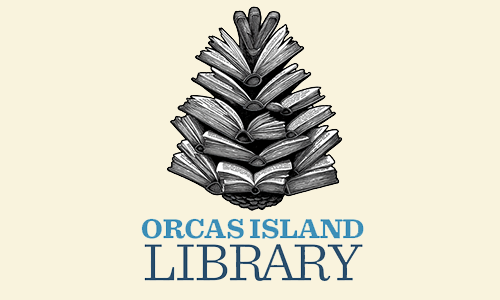Bullwings: Orcas Issues is proud to collaborate with the Stewardship Network of the San Juans to bring its series, “A Short Run to the Sea” to our readers.
We will reproduce daily articles from the series created and published on Stewardship Connections, an electronic publication of the San Juan County Marine Resources Committee and Lead Entity for Salmon Recovery.
The marine critters in the Spring Street Aquarium in Friday Harbor have a story to tell, if we “listen”. It’s not an easy story, but it’s a true story. It tells how the polluted runoff from our streets, businesses and homes can harm our fresh and marine waters and the critters that inhabit them. The story compels us to acknowledge that our behaviors can unintentionally harm the essence of life here in the islands: water.
During a recent winter all the bottom-living animals in the aquarium died. It took a while to understand the cause, but thanks to the dedicated work of Mike Kaill, the marine biologist that manages the public aquarium, we now know that surfactants are the culprit.
Surfactant is an abbreviation for surface-active agent. A surfactant is a chemical, natural or man-made, that stabilizes mixtures of oil and water by reducing the surface tension between the oil and water molecules. Because water and oil do not dissolve in each other a surfactant has to be added to the mixture to keep it from separating into layers.
Surfactants are found in nearly every product we use in our daily lives, from toothpaste to car oil. Surfactants are the key ingredients that make soaps and detergents work. They are also found in many yard care products, such as fertilizers, herbicides, fungicides and pesticides. The surfactants used in engine fluids are designed to be exceptionally stable and long lasting to help keep our cars running smoothly. They make our lotions and makeup spread easily. Surfactants do their jobs very well. Unfortunately they have also proven to be harmful to the aquatic critters that inhabit our fresh and marine waters. Fish and other aquatic critters rely on gills or other membranes to allow oxygen, nutrients and wastes to pass. The surfactants gum up these processes and even make the animal more susceptible to other pollutants in the water.
We have learned that when surfactants make their way into runoff, they attach to fine grains of silt. These sediments are suspended in water and ultimately settle to the bottom of the body of water, which could be a pond, lake, wetland, or bay. Any fluid that leaks collects on roads and driveways, attaches to silt, and eventually is transported by rains into the storm drains and out to the bay.
This story is not an easy one, and if it weren’t for the aquatic critters in the aquarium, we might not have been able to see what was occurring.
We have an opportunity to reduce the amount of surfactants making their way into our fresh and marine waters. By using less soap and detergents and yard care products, fixing the leaks from our cars and even driving less, we together, with our individual actions, can help keep our waters healthy and safe. We can also work together to design our yards, neighborhoods and towns to direct runoff to healthy soil and plants to filter and break down the pollutants.
For the full series of articles, go to www.shortruntothesea.org
The San Juan Marine Resources Committee (MRC) was started in 1996 as a grassroots effort to establish local management of marine resources. It was the prototype for the creation of a federally sponsored network of seven MRCs working in northern Puget Sound and the Strait of Juan de Fuca. The MRCs are supported by federal funding through the Northwest Straits Marine Conservation Initiative.
The “Short Run to the Sea” campaign has been supported by the Education, Communication and Outreach Network (ECONet) of the Puget Sound Partnership.
**If you are reading theOrcasonian for free, thank your fellow islanders. If you would like to support theOrcasonian CLICK HERE to set your modestly-priced, voluntary subscription. Otherwise, no worries; we’re happy to share with you.**







